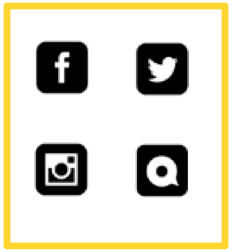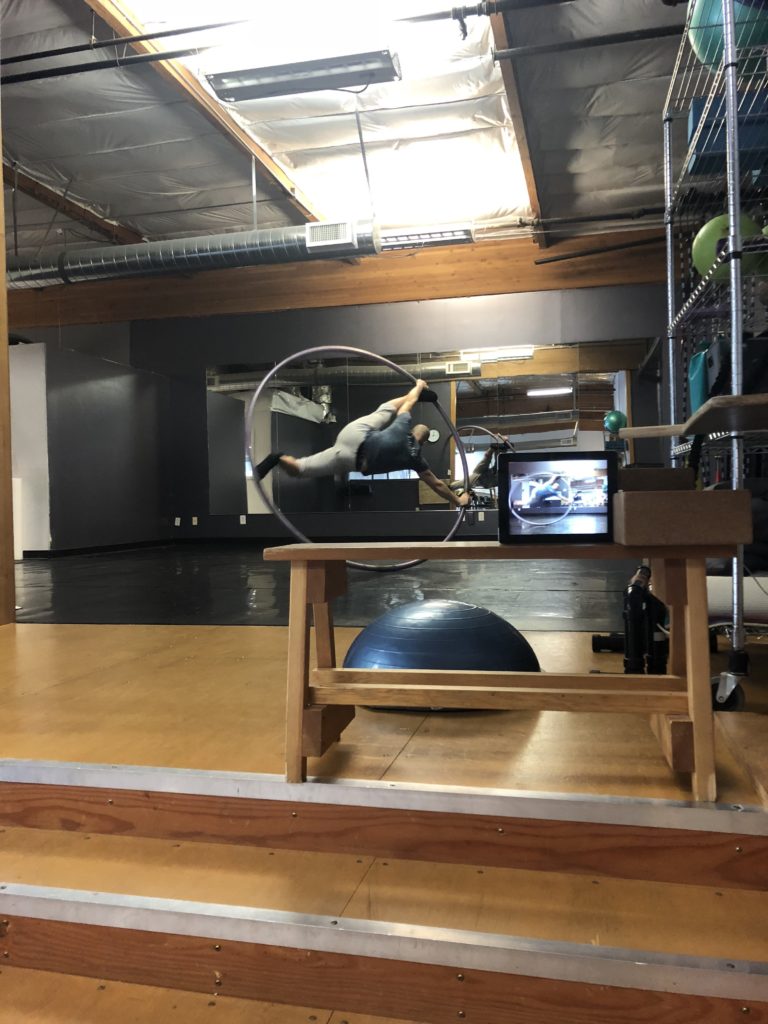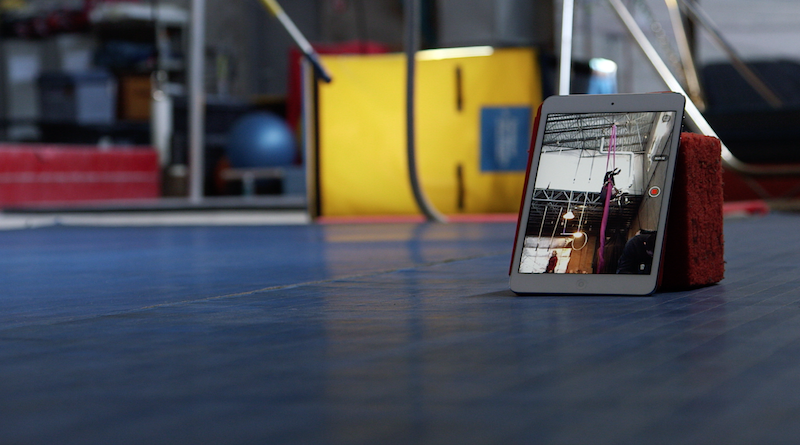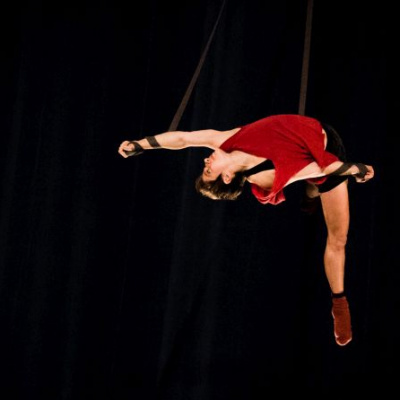5 Tips for Self-Marketing as an Artist
I was sitting in the chapel-turned-classroom at Ecole de cirque de Quebec, listening to Julie Lavergne talk about the overview of her class—how to market oneself, how to find work, how to deal with taxes—when it suddenly hit me…
I was an entrepreneur.
Of course, I had known this when I started my circus-career endeavor. But I don’t think the reality of the amount of work it takes to get work actually hits you until you look the job full in the face. Honestly, the training was the easy part. The training was the part I enjoy the most.
But circus is not just training. Circus is two full-time jobs: the training-performing-act creating job, and the business person, email-sending, gig-searching job. If, like me, you have to go find non-circus work to cover the bills for a few months while looking for contracts, you somehow become muddled in this mire of three-jobs, no social life, and an ever-mounting terror that you just won’t make it.
Let me say this: it is perfectly normal to lock yourself in a bathroom with a cup of tea and cry for an hour. I will admit to doing it, and other post-circus school graduates have admitted to doing it, too (I won’t name names. Just trust me, you are not alone).
So, to make sense of it all, I decided to contact several high-profile resources on the subject, some of whom I knew from school and a few of whom I sent emails to, asking for advice.
Julie Lavergne, coach at Ecole de cirque de Québec; Josh Aviner and Lyndsay Magid-Aviner of the Hideaway Podcast; Ryan Shinji Murray, from Cirque Eloize’s ID and Cirque du Soilel’s Kurios; and Erica Rubenstein from the Circus Project all responded.
I’ve compiled five pieces of advice from them to share with the rest of my budding circus artist-entrepreneurs out there. I hope it helps!
1. Create a strong online presence, and update it regularly
 When you start out, it may seem like you are using Facebook/Instagram/Twitter/ YouTube/Website/CircusTalk all the time. But how often do you actually update all of these websites? I started an Instagram, created a Facebook page, made a website…and seven months later, Instagram has stuck (or is that just the addiction?) and my Facebook page is behind. The only reason I update my website is because I also update my blog. “Stick to two, maybe three max, but don’t spread yourself so thin that half of them are six months behind schedule,” advises Lavergne. Videos on social media aren’t just about the tricks, either. “Talking into the camera so we can hear your voice and get a taste of your personality helps too,” wrote Aviner and Magid-Aviner. There are several other tricks to up your Insta game: rather than putting the hashtags in the body of the post, post them in a comment immediately after you make the post. “It all starts with posting regularly and engaging with people. Try to put something up once a day for a month without letting it burn you out,” says David Grimes, a certified Master Calligrapher who gained international attention when Instagram asked to use some of his calligraphy videos as their advertisement. He now gets booked worldwide to teach calligraphy. “And when people comment make sure that you reply and have conversations,” Grimes continued.
When you start out, it may seem like you are using Facebook/Instagram/Twitter/ YouTube/Website/CircusTalk all the time. But how often do you actually update all of these websites? I started an Instagram, created a Facebook page, made a website…and seven months later, Instagram has stuck (or is that just the addiction?) and my Facebook page is behind. The only reason I update my website is because I also update my blog. “Stick to two, maybe three max, but don’t spread yourself so thin that half of them are six months behind schedule,” advises Lavergne. Videos on social media aren’t just about the tricks, either. “Talking into the camera so we can hear your voice and get a taste of your personality helps too,” wrote Aviner and Magid-Aviner. There are several other tricks to up your Insta game: rather than putting the hashtags in the body of the post, post them in a comment immediately after you make the post. “It all starts with posting regularly and engaging with people. Try to put something up once a day for a month without letting it burn you out,” says David Grimes, a certified Master Calligrapher who gained international attention when Instagram asked to use some of his calligraphy videos as their advertisement. He now gets booked worldwide to teach calligraphy. “And when people comment make sure that you reply and have conversations,” Grimes continued.
2. Be patient and persistent

I was training straps in Portland and chatting with another friend of mine about the never-ending email game. “What do you mean?” she asked. “I send it, and then if they don’t respond, oh well. I don’t want to hound them or anything.” Sending multiple, updated emails on a consistent schedule is not ‘hounding.’ It’s part of how you stay in the forefront of a company’s mind. “Resend emails with updated videos every six months. Remind the company that you are there,” Lavergne said in her class at Ecole de cirque de Quebec. “Building a career takes time, but if you’re smart, adaptable, hard working and have a little luck, you’ll be alright,” Aviner said. Lavergerne says it can take two years for a new circus career to get off the ground.
3. Make a Plan, be clear about your goals
Hands down, the best thing I have ever done was to buy a planner. One of those year-long ones with enough space that you can write down every single thing you need to do, check it off when it’s done, and see the tangible progress you make towards your goals. Tedious? Yes. But every year I write my most-important goal and how I want to progress towards it–and every year I look back and say, oh, hey look–I succeeded. Take the time to plan out where you’d like to be, one month from now, three months from now, a year from now, five years from now. What kind of company do you gravitate towards? What country? What are you disciplines? “A large aspect of any career is being in the right-place at the right-time, but you can certainly up your odds of being in that right-place and right-time by working towards specific goals. For example, if you really want to be in Cirque du Soleil, go to those casting events and meet that community. If you want to be in Big Apple Circus go see the show, meet the cast, try to meet the new owners, etc. By being proactive and making a concerted and clear effort you put yourself closer to the right-place and right-time. Self marketing is obviously a huge element, but like any marketing, you still want your product to come across as cool, interesting, new, and in-demand,” Aviner and Magid-Aviner say. Several friends and coaches have told me along the way to be clear about my timeline: “Ask yourself how long you can live with the uncertainty about what’s going to happen next,” Rubenstein told me.
4. Play to your strengths and always keep learning

Be honest about your weaknesses and then keep working on them (this fits in nicely with point 3; make a plan). I was a terrible dancer. Or, rather, I was terrible at learning choreography. And because I was terrible, I felt stupid about it. I was in Paris and a friend invited me to a week-long dance-intensive workshop. I said yes. There were three circus folk, and the rest were dancers. We stood out like zebras among flamingos. And to this day I consider that week one of the best experiences of my life. You get better at things when you are honest with yourself and when you put in the work to get better. “I was always practicing something, always learning something new,” says Shinji Murray on episode 29 of The Hideaway Podcast. “The best way to learn things faster is to learn more things. The more different things you learn– the better you have a strategy of learning when you approach something new,” he continues. “Find the things that make you happy and do it.” When I asked him to expand on this idea, he told me, “I think there is always a place for any skill you have, but I think if you want to call it circus you need to introduce it with or around circus disciplines to give it context.”
5. Meet People
My first year of school, my coach gave me homework. “Go to parties,” he said. “How else are you going to meet people? I tell you, I got ninety percent of my jobs from people who thought I was a cool person to hang out with.” Good networking is probably the most valuable skill you can have as a circus artist. “Connections, connections, connections!” Rubinstein said. “Ask your coaches and mentors for advice. Say hi even when it is scary. Ask the people who have the jobs you want how they got there. “ Circus performers want to see you succeed; after all, circus, like any art form, continues because it is passed on. Everyone I have reached out to has responded enthusiastically. “Nothing beats in-person networking,” Aviner and Magid-Aviner told me. Besides just Internet networking, “our other suggestion would be to travel and see some circus festivals and meet new artists, directors, and producers.”
Even though I found parallels throughout all the conversations that I had with the circus-folk who responded to my questions, Aviner and Magid-Aviner summed it up when they said, “There is no one-size-fits-all kind of option for this, you just need to find out what works for you and push that hard.” Being an entrepreneur is another facet of creativity and exploration. My own goal? To make self-marketing into a game that I enjoy, rather than a job that I dread.
Editorial note: Circus Talk would like to invite readers to share their counsel with the community. We are looking for advice articles from people in the circus industry about business development, marketing, artistic development, casting, auditions, creation, etc....
Do you have a story to share? Submit your news story, article or press release.





